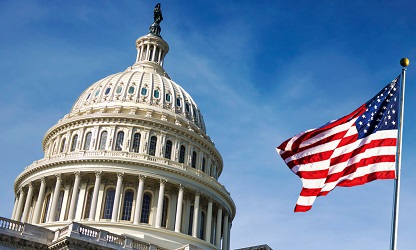Posted by Melissa Cruz | Mar 18, 2021 | Benefits & Relief, DACA/DAPA, Legislation, Reform, Temporary Protected Status
The U.S. House of Representatives passed two immigration bills on March 18, signaling that Congress might finally enact major immigration reform for the first time in over three decades.
These bills—the Dream and Promise Act and the Farm Workforce Modernization Act—both offer pathways to U.S. citizenship for many immigrants with longstanding ties to the United States.
Who Benefits from the Dream and Promise Act?
Millions of immigrants living in the United States may soon be eligible for permanent status, thanks to the passage of the Dream and Promise Act of 2021. The bill passed by a 228-197 vote in the House.
If the legislation also passes in the Senate, it will provide an estimated 4 million Dreamers—young immigrants who came to the U.S. as children—a pathway to American citizenship. This would go further than the Obama administration’s Deferred Action for Childhood Arrivals (DACA) initiative, which only provided temporary protections from deportation and the ability to work lawfully.
Another 400,000 people with Temporary Protected Status (TPS) and Deferred Enforced Departure (DED) would also receive a pathway to citizenship. Countries are designated for TPS or DED due to ongoing armed conflict, natural disaster, or other extraordinary conditions. Most recipients have lived in the U.S. for decades.
What Does the Dream and Promise Act Provide?
The legislation—introduced on March 3 by Representative Lucille Roybal-Allard—would give current, former, and future undocumented high school graduates and GED recipients a pathway to citizenship.
Those who are eligible would need to follow a three-step process to obtain citizenship through college, work, or the armed forces.
Upon meeting certain eligibility requirements, a person could apply for conditional permanent residence status.
After maintaining that status, they can apply for lawful permanent residence (LPR)—also known as a green card—after completing two years of college, two years in the armed services, or three years of employment. Individuals can apply for a “hardship waiver” if they don’t meet any of these requirements but have a disability or work as a full-time caregiver. The applicant may also receive a waiver if an LPR or U.S. citizen-spouse, parent, or child would face extreme hardship if they were deported.
Once a person has held a green card for five years, they will be able to apply for U.S. citizenship through the normal naturalization process.
Who Benefits from the Farm Workforce Modernization Act?
Undocumented farmworkers, spouses, and their children would be given a pathway to citizenship through the Farm Workforce Modernization Act. It passed the House by a 247-174 vote.
Farmworkers—many of whom are Mexican men on H-2A visas—often toil under dangerous conditions providing Americans’ food supply. They have little workplace protections and no social safety net. The situation for undocumented farmworkers has only grown worse during the COVID-19 pandemic.
What Does the Farm Workforce Modernization Act Provide?
The bill seeks to correct some of the longstanding injustices undocumented farmworkers have faced for decades.
It would create a process for farmworkers to earn a temporary status as a Certified Agricultural Worker. Individuals could earn this new status if they can show they’ve worked at least 180 days in agriculture over the last two years. Spouses and children of undocumented farmworkers could also apply for temporary status under the act.
Individuals could then get a green card after paying a $1,000 fine and completing additional agriculture work. The length of additional work would depend on how they have already worked in the farming industry in the U.S.
The bill also seeks to streamline the H-2A visa process for employers and applicants by cutting the amount of required paperwork. It would also reduce the number of petitions employers must file for each worker.
What Is Next for the Bills?
The bills will now go to the U.S. Senate. Though the bills have received a level of bipartisan support, there are no guarantees on their passage. However, House leaders are cautiously optimistic that the bills can pass the Senate and become law.
Despite their uncertain future, these two pieces of legislation represent a historic chance at much-needed immigration reform.FILED UNDER: Biden-Harris Administration, DREAM Act




